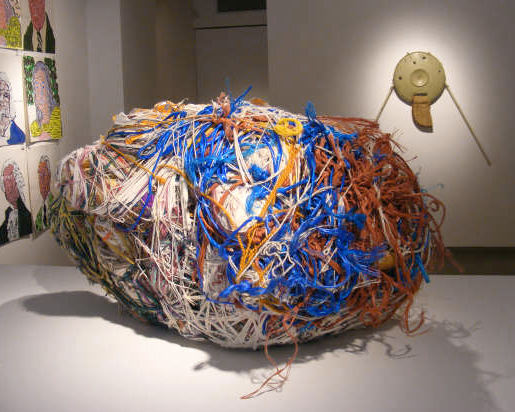




And I thought about the meaning of "asylum," and how it has been altered by institutional abuse so that it conveys opposite meanings - both a place to be avoided at all costs and a place of protection. Rescue and reunion are part of Judith Scott's story, but so is her indomitable spirit, which has found release in layered bundles expressive of a mystery we'll never fully comprehend.
"Metamorphosis: The Fiber Art of Judith Scott" will be at the Collection de l'Art brut in Lausanne, Switzerland, from October 11, 2001, to February 3, 2002.
http://www.fiberarts.com/article_archive/profiles/judithscott.asp
The urge to make associations with her work is almost unavoidable. Just for starters, they are bundled, wrapped, enfolded, sheltered, clothed, enveloped, and bandaged. They are also tough: raw, knotted, controlled. They are made slowly with accretions of "found" materials wrapped in place, much as a spider encases a fly in her web.
These found materials, to put it bluntly, are mostly stolen, or "appropriated," to use proper art-speak. But art-speak is inappropriate for discussing Scott's work. We can't begin to know what is going on inside her, for not only is she profoundly deaf, she doesn't speak, and she is also developmentally disabled, having been born with Down's syndrome almost 60 years ago.
No comments:
Post a Comment